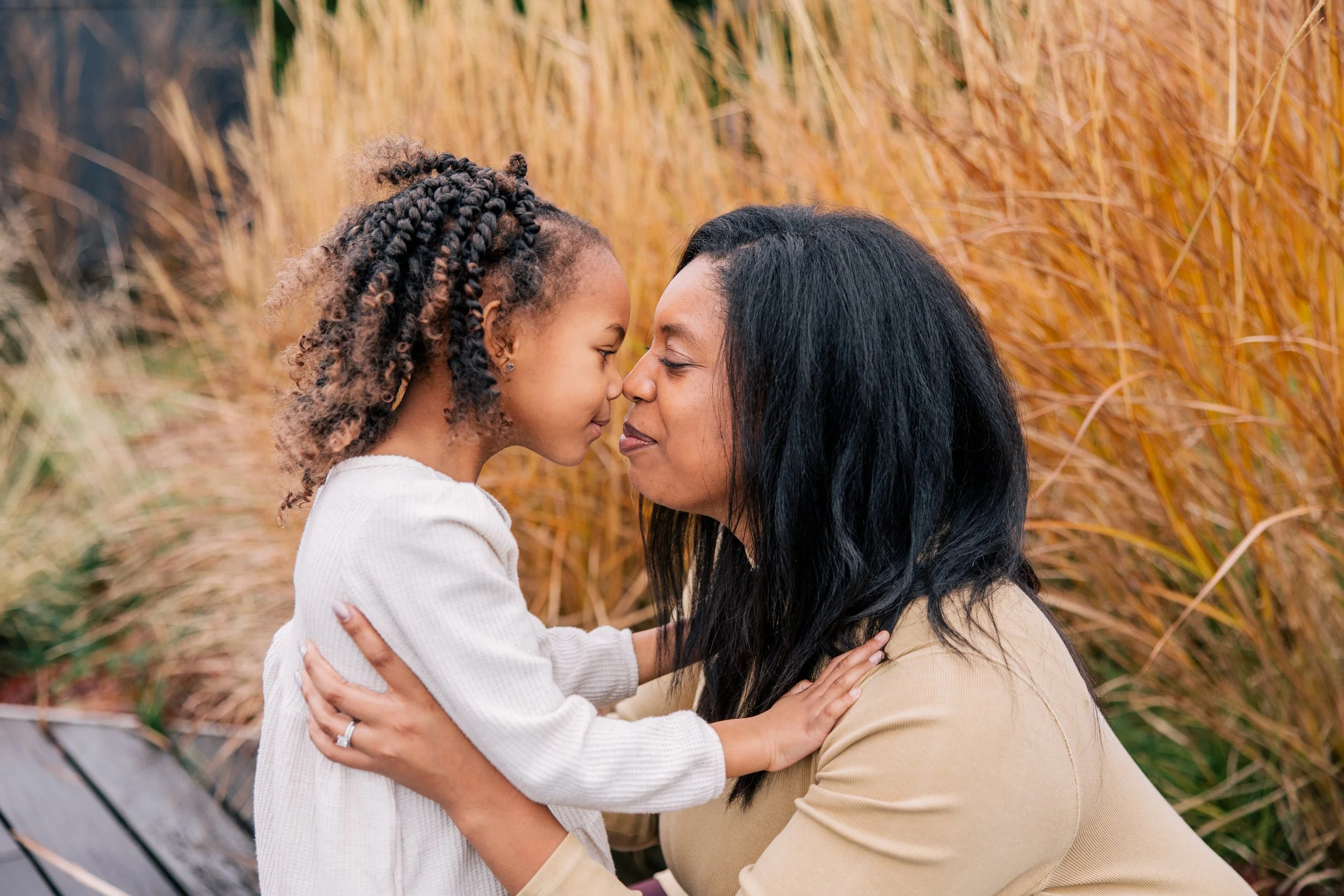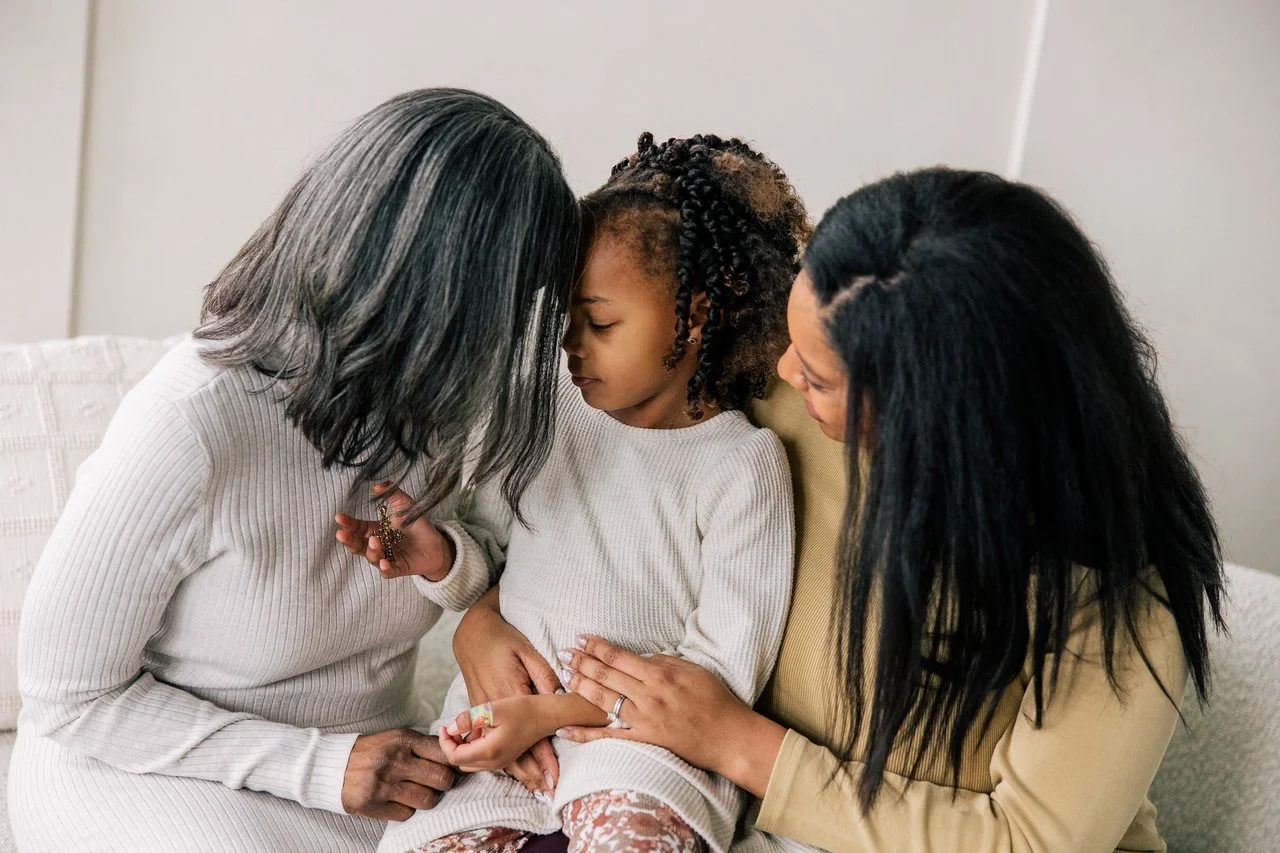🌿 Navigating a New ADHD Diagnosis at 36: How It’s Shaped My Motherhood Journey & Healed my inner child.
I never expected that in my mid-thirties, alongside juggling career, motherhood, and all the invisible labor of daily life, I’d also be unraveling a brand-new diagnosis: ADHD.
For years, I had brushed aside the little things — the way my mind ping-ponged between tasks, how I’d lose hours hyper-focusing on one project, or the exhaustion that came from masking disorganization with perfectionism (insert my disaster of a car and PILES of laundry). I chalked it up to stress, burnout, or simply “being bad at adulting.” But sitting in a therapist’s office at 36, hearing the words “two type ADHD- hyperactive and impulsive,” was like pulling a thread that unraveled my entire understanding of myself.
The Diagnosis That Reframed Everything
Receiving an ADHD diagnosis as an adult can feel both liberating and overwhelming. On one hand, there’s a tremendous sense of relief: So it’s not just me. There’s a name for this. On the other, there’s grief for all the years I struggled without language or tools, chronic MASKING and adapting, but mostly blaming myself for shortcomings that were never moral failings.
For me, this diagnosis didn’t arrive in a vacuum. It came while raising my 5-year-old daughter, who is neurodiverse in her own right. Parenting is never straightforward, but parenting while also learning about my own neurodivergence has been a mirror — sometimes painfully reflective, other times profoundly illuminating.
ADHD Meets Motherhood
The narrative around motherhood often paints a picture of selflessness, organization, and unending patience. ADHD laughs in the face of all of that. My executive functioning challenges mean that consistency — the very thing experts tell us children thrive on — can feel like a mountain I’m constantly trying to climb.
There are mornings when getting out the door feels like a three-act play: I forget snacks, kids melt down about socks, and suddenly we’re all dysregulated before the day begins. In the past, I would spiral into shame. Why can’t I get it together? Why does every other mom seem to manage?
Now, I see it differently. My brain processes the world uniquely. That doesn’t make me a bad mom. It makes me a mom who needs structure, grace, and sometimes extra support.
Raising a Neurodiverse Daughter
In many ways, my daughter and I are learning side by side. She’s 5, neurodiverse, full of big emotions and even bigger ideas. Her way of moving through the world is uncannily familiar — I recognize pieces of myself in her creativity, her distractibility, her intensity.
There are moments when our challenges collide: her sensory underload meets my overstimulation, and suddenly we’re two nervous systems sparking against each other. But there are also moments of magic. I understand her in ways that feel instinctual because I live in a similar wiring (as she says- “You know my brain”). Our bond and similarities allow me to be steps ahead and catch her before she missteps and provides compassion when I can’t and give her grace in areas most people find frustration.
Instead of trying to “fix” either of us, I’m learning to lean into curiosity. What does she need to feel safe in her body right now? What do I need to stay regulated alongside her? Sometimes that looks like a break, sometimes like a silly dance party, and often it looks like apologizing when I get it wrong.
The Emotional Load of Late Diagnosis
One of the hardest parts of this journey has been the grief. Grief for the little girl I was, who internalized that she was highly sensitive, impulsive or careless instead of realizing she was struggling with executive functioning. Grief for the young woman who burned out trying to keep pace with peers. And grief in motherhood, for the times my symptoms have felt like barriers to the kind of mom I want to be.
But diagnosis also brought a kind of joy: permission to rewrite the script. I no longer frame my struggles as failures. I see them as part of my neurodivergence — something to work with, not against. And when I extend that compassion to myself, I extend it to my daughter, too.
Even more healing is how my relationship with my own mother has expanded and evolved. When I shared with her the new phrase describing my superpower, she was almost dismissive. Almost as if she felt innate shame that this was “missed”; however, when I reframed the ways my ADHD has served me in many ways- I visibly saw her tension leave her shoulders and her head fall back into relief. Because, my deficits (not what I call them) are actually my superpowers! What some call impulsive, I call it adventurist and brave; what some call highly sensitive, I call compassionate and altruistic; what some call careless/disorganized, I call innovative and creative.
Navigating this new relationship with my own mother has opened her capacity to see her own grandaughter in a positive light that brings her immense joy. Rather than reactivity to challenging moments, she is able to respond with grace, reflection and compassion. In scenarios that may have been explosive in my child hood, these scenarios are topics of discussion resulting in learning and growth- never shame or harm- THIS IS WHAT IS HEALING FOR ALL THREE OF US! This is where I find my joy and love for myself deep into my core.
Learning to Find Joy
The truth is, my capacity for joy has deepened because of this diagnosis. Joy isn’t about perfection or smooth sailing anymore; it’s about presence. It’s in the messy art projects, the belly laughs before bedtime, the resilience of repairing after a tough morning.
ADHD doesn’t erase my ability to mother well. If anything, it reminds me that my creativity, empathy, and intensity are gifts. My daughter doesn’t need a “perfect mom.” She needs me — present, messy, learning, and trying again tomorrow.
Why I Share This
I share this story because so many of us are walking around with invisible weights. Maybe you, too, were diagnosed later in life. Maybe you’re parenting a child whose wiring feels achingly familiar. Maybe you’re just tired of the pressure to have it all together.
If that’s you, I want you to know this: there is hope. There is room for both grief and joy. And you are not broken — you are becoming.
This lived experience is what informs my support to not only my daughter but others who I walk through life with- including patients. If you relate, I would love to connect and offer you a space to process and accept the deep rooted parts of you that you are learning to love.
✨ Here at Sprouted Joy Psychological Services, I believe in holding space for the whole journey — the struggles and the growth, the diagnoses and the discoveries, the heartbreak and the healing. Thanks for letting me share a piece of mine.
PLEASE CHECK OUT MY GUIDED JOURNALS & OTHER OFFERINGS THAT MAY CONNECT WITH YOU



